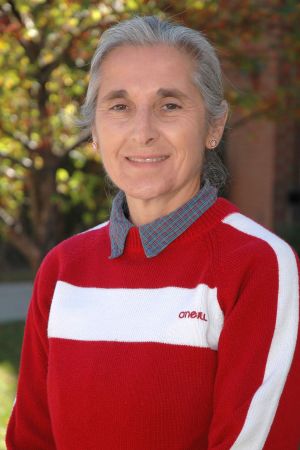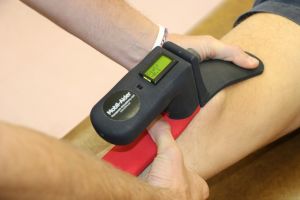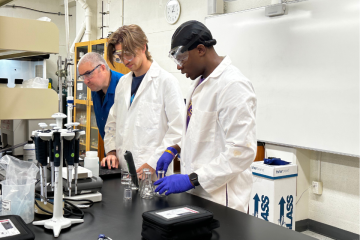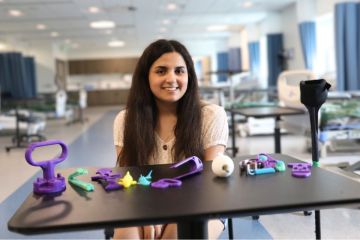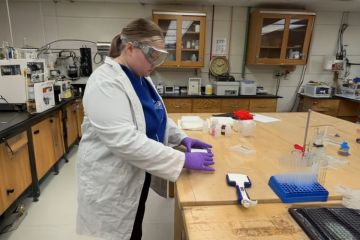Physical Therapy Professor Awarded National Science Foundation Grant

Dawn Gulick, a professor in the Institute for Physical Therapy Education, was recently awarded the phase 1 Small Business Innovation Research grant of $222,255 by the National Science Foundation. The grant will fund the continued development of her invention, the Mobil-Aider.
“As a clinician and an educator, contributing to my field of work is a top priority and the Mobil-Aider can allow me to make an impact both in the clinical setting and in the classroom,” Gulick said. “I am grateful to the National Science Foundation for this opportunity to strengthen and improve the Mobil-Aider’s function so that it may contribute to high-quality patient care, treatment and learning.”
Developed by Gulick, the Mobil-Aider is a FDA-approved and patent-pending innovative device designed to improve joint mobility assessment through quantitative, not qualitative, measures.
Musculoskeletal injuries affect nearly one in two adults in the United States and result in pain, swelling, and limitations in joint movement. The Mobil-Aider improves the traditional evaluation method of musculoskeletal injuries in the shoulder, elbow, wrist, knee, and ankle by allowing clinicians to operate the device between the patient’s skin and the clinician’s hands and receive immediate quantitative feedback.
Traditional treatment for musculoskeletal injuries consist of clinical assessments through qualitative measures determined by a clinician’s feel and touch of joint movement which can vary among clinicians. The Mobil-Aider removes inconsistencies by translating joint movement with numerical data that can be shared among care teams.
In addition to its clinical impact, the Mobil-Aider is a valuable learning tool for educators and students. The Mobil-Aider’s ability to provide quantitative, digital feedback on joint mobility assessment in addition to the qualitative feel of performing a technique can enhance the student learning experience and understanding of the orthopedic practice.
Gulick anticipates that the Mobil-Aider will continue to move through the development stages to enable her to apply for phase 2 funding approval and clinical testing over the next year.

